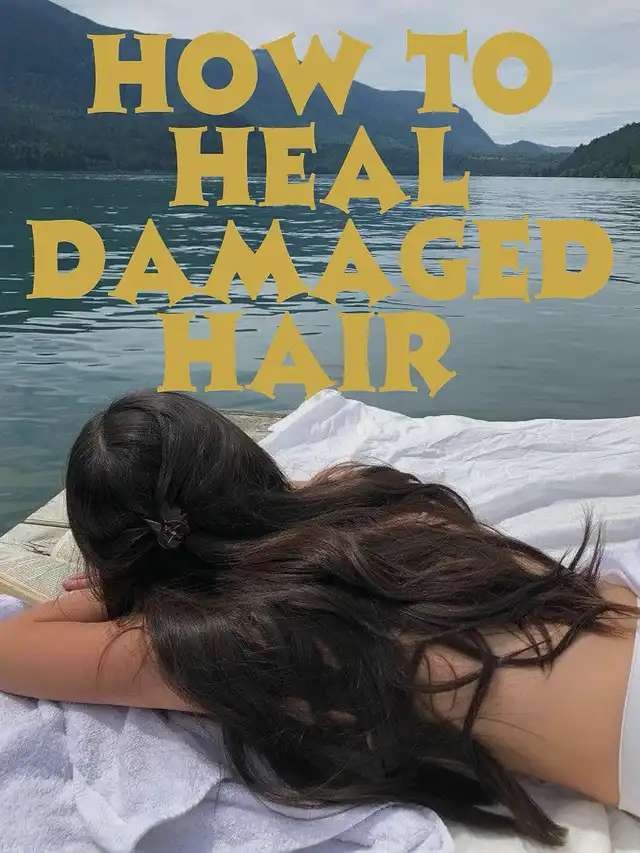
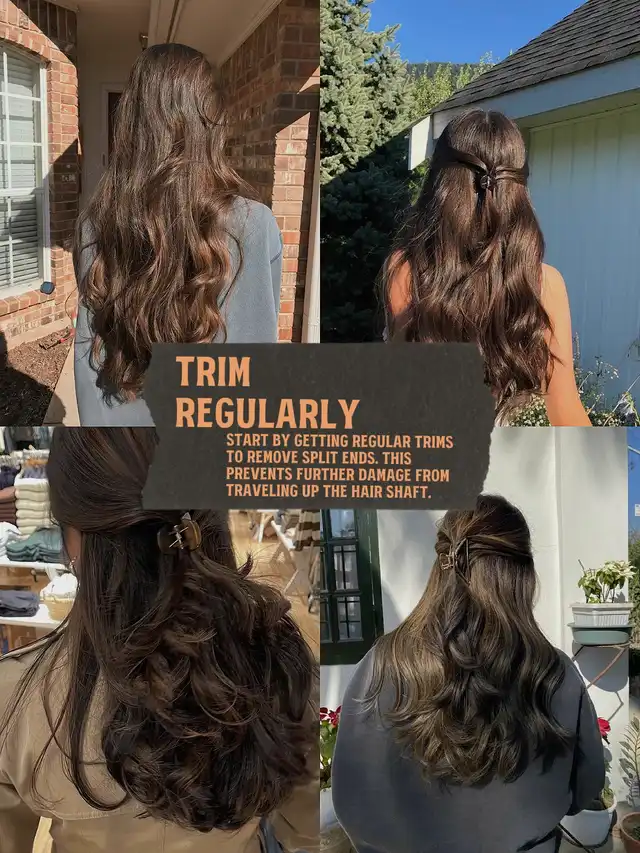
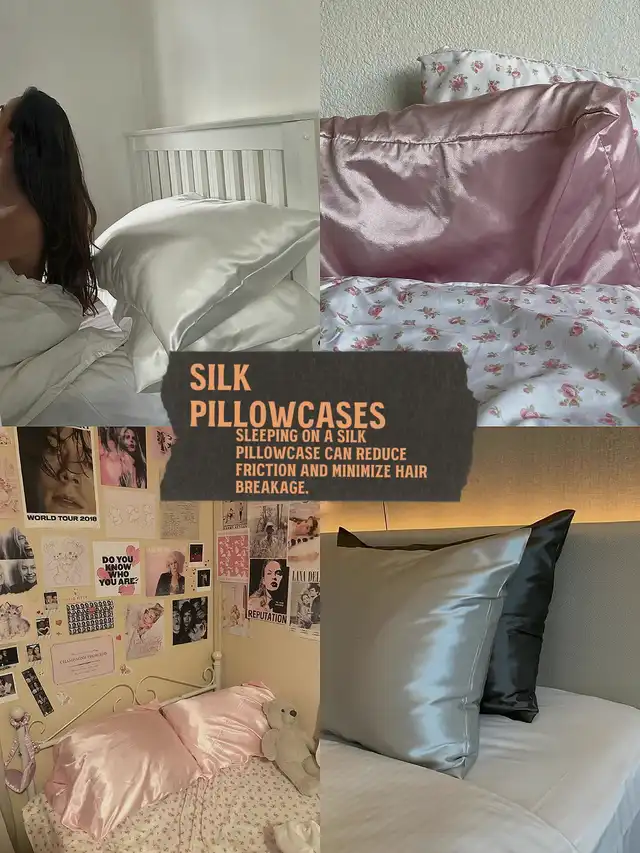
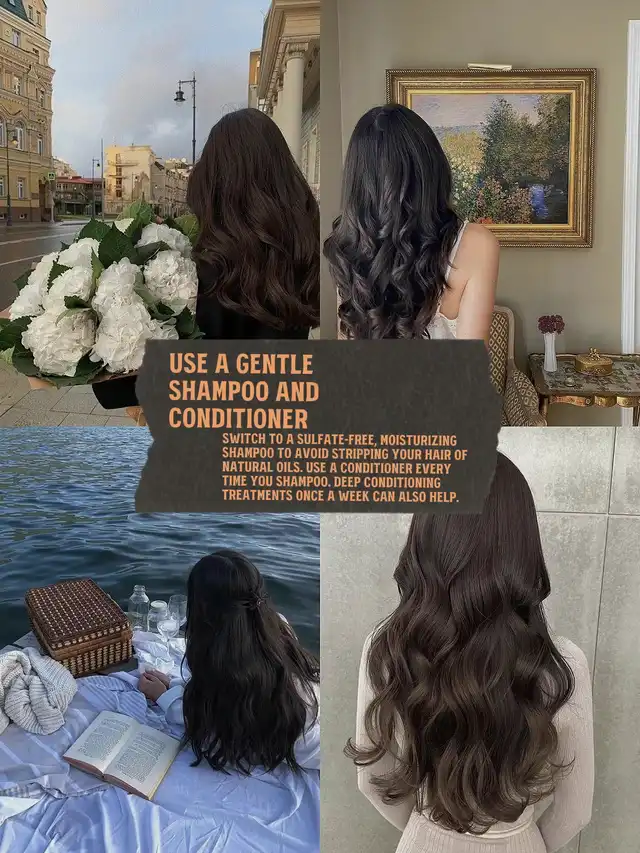
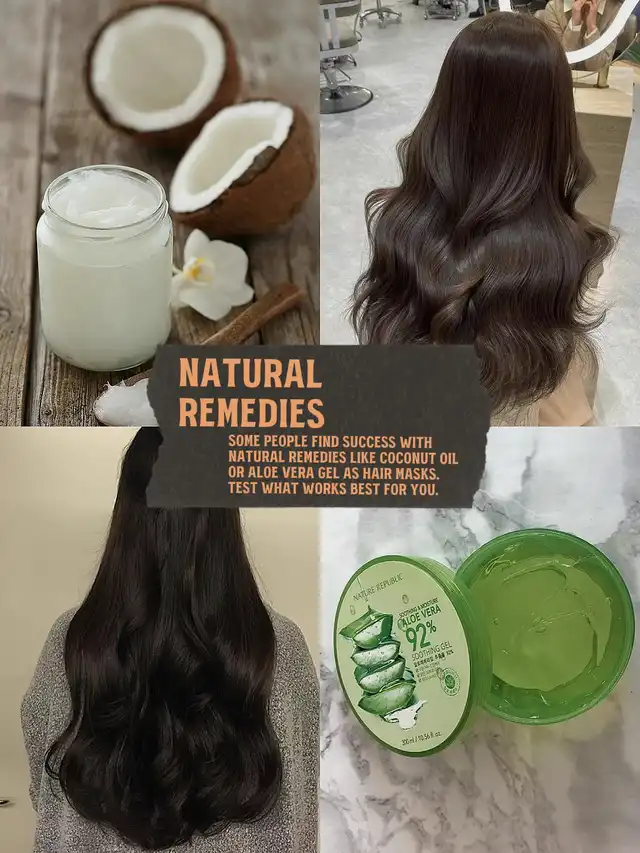
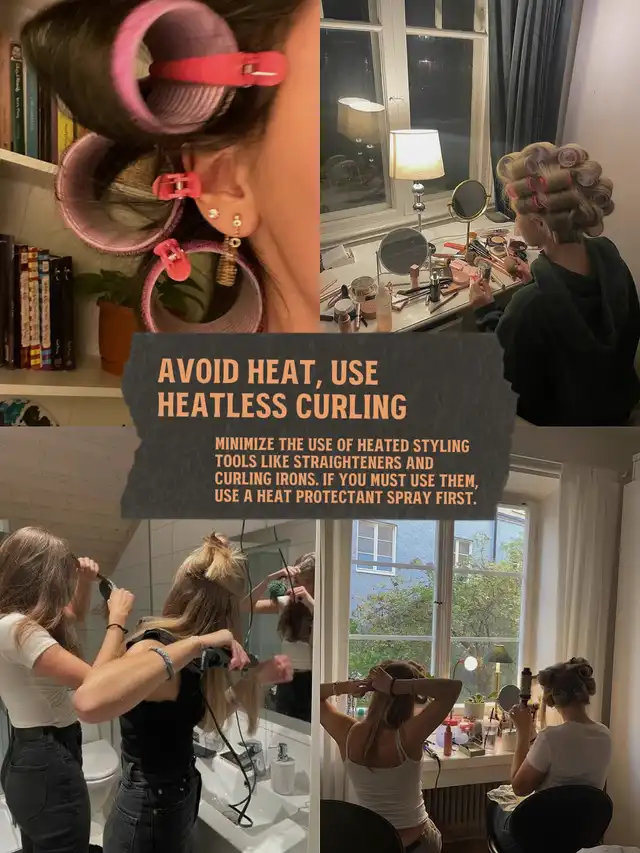
Here are some tips to heal your damaged hair!
Disclaimer: this research and personal experiences are based on what works for me and what might work for people who have my type of hair. I don’t have enough information about other hair types but this is how my hair works🫶🏼 i hope you understand🫶🏼
1. Trim Regularly: Start by getting regular trims to remove split ends. This prevents further damage from traveling up the hair shaft. Split ends occur when the hair shaft splits into two or more parts. If left untreated, they can travel up the hair shaft, causing more damage. Regular trims remove split ends, preventing further damage. Trimming keeps your hair looking healthy and well-maintained. It removes damaged and frayed ends, making your hair appear smoother and shinier. Contrary to a common myth, regular trims don’t make your hair grow faster, but they do promote healthier growth. By eliminating split ends and breakage, your hair can grow longer without constant setbacks.
2. Silk Pillowcases: Sleeping on a silk pillowcase can reduce friction and minimize hair breakage. Silk is a smooth and slippery fabric, which creates less friction against your hair compared to cotton or other materials. This reduced friction minimizes hair breakage, tangling, and split ends. If you’ve styled your hair before bed, silk pillowcases help your hairstyle stay in place. They don’t rough up your hair like other fabrics can, so you wake up with your style relatively intact. Silk is less absorbent than cotton, so it doesn’t draw moisture away from your hair. This means your hair retains more of its natural oils and moisture, helping to keep it hydrated and less prone to dryness and frizz.
3. Use a Gentle Shampoo and conditioner: Switch to a sulfate-free, moisturizing shampoo to avoid stripping your hair of natural oils. These shampoos help maintain the natural balance of oils on your scalp and hair. This is crucial for hair health because these oils provide moisture and protection. Harsh shampoos with sulfates and other aggressive ingredients can irritate the scalp. Gentle shampoos are less likely to cause scalp irritation or sensitivity. Use a conditioner every time you shampoo. Deep conditioning treatments once a week can also help. Conditioners contain ingredients that moisturize and hydrate your hair, helping to prevent dryness and frizz. They lock in moisture, especially in dry or damaged hair.
4. Natural Remedies: Some people find success with natural remedies like coconut oil or aloe vera gel as hair masks. Test what works best for you. Coconut oil is rich in fatty acids that penetrate the hair shaft, providing deep moisturization. It helps combat dryness, frizz, and split ends by locking in moisture. The proteins in coconut oil can help strengthen the hair, reducing the risk of breakage and promoting overall hair health. Aloe vera has a soothing and cooling effect on the scalp, making it beneficial for individuals with scalp irritation or sensitivity.
5. Avoid heat, use heatless curling: Minimize the use of heated styling tools like straighteners and curling irons. If you must use them, use a heat protectant spray first. Instead, you can use heatless curlers. High temperatures from styling tools like flat irons, curling irons, and hairdryers can weaken and damage hair over time. Avoiding heat styling minimizes this damage. Heat can strip your hair of its natural moisture, leaving it dry and more susceptible to breakage. Avoiding heat helps retain moisture and prevents excessive dryness. Heatless curling methods, like curling rods, braiding, or foam rollers, don’t expose your hair to damaging high temperatures. This means your hair remains healthier and less prone to damage.